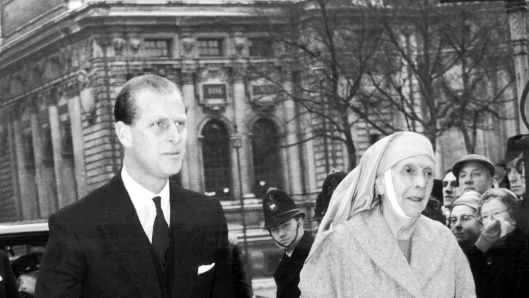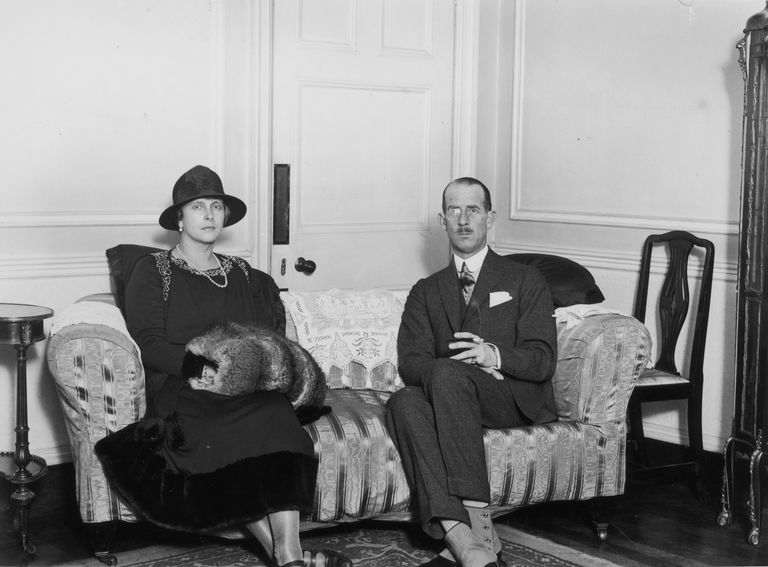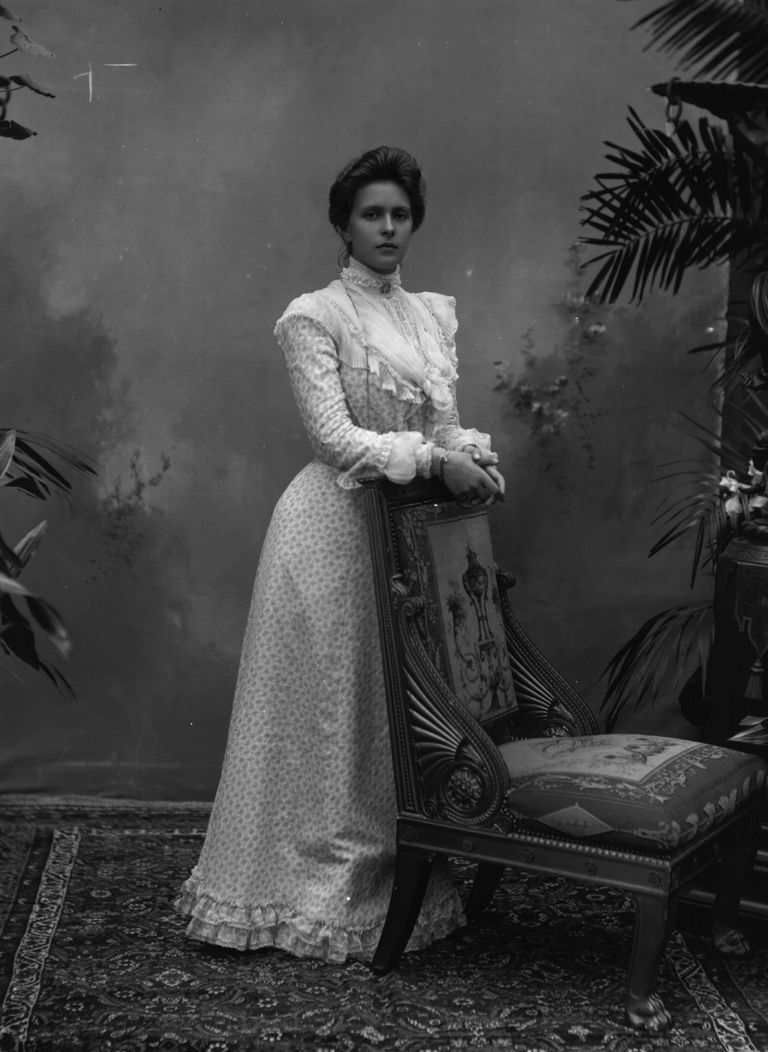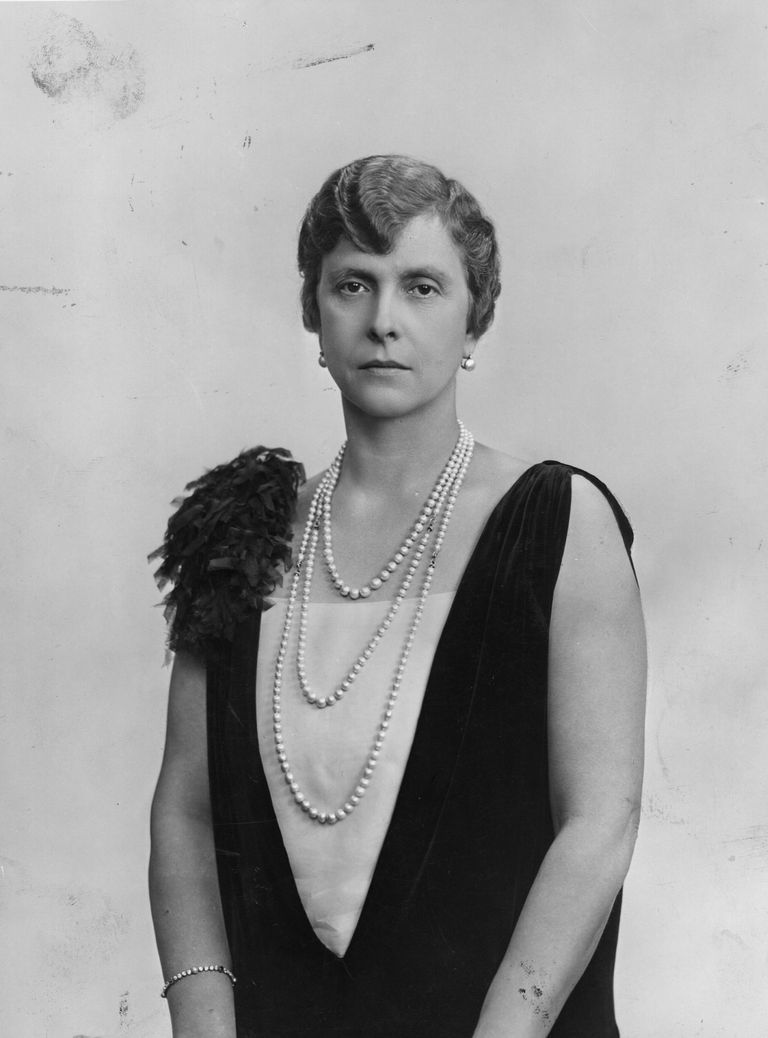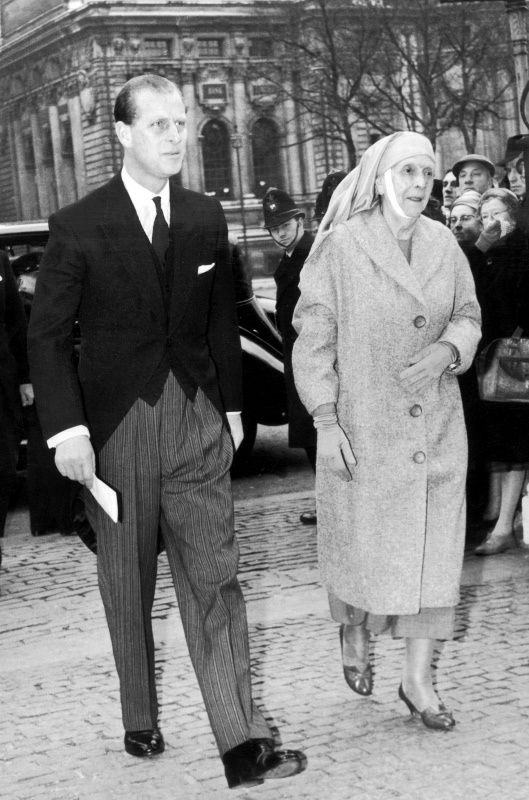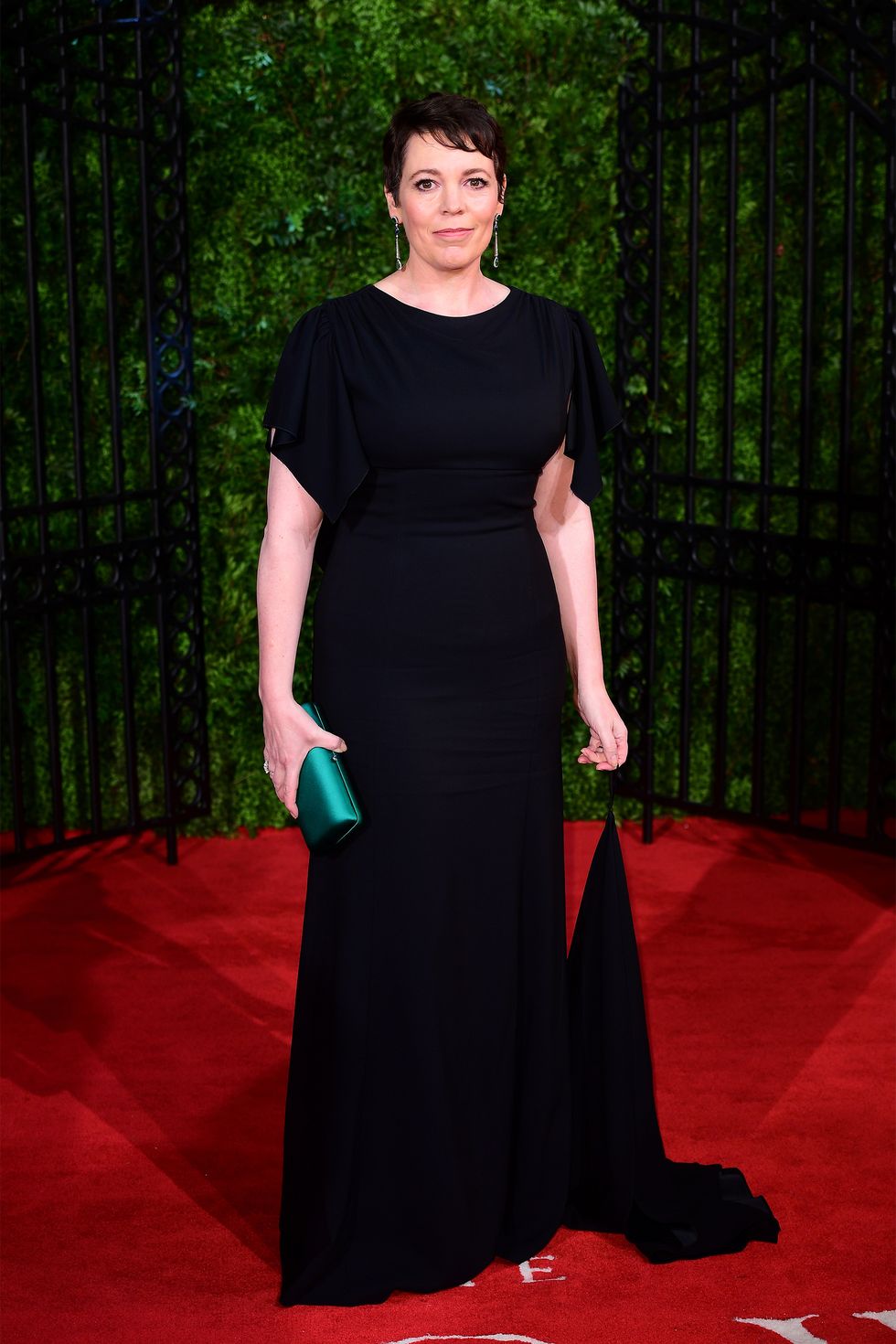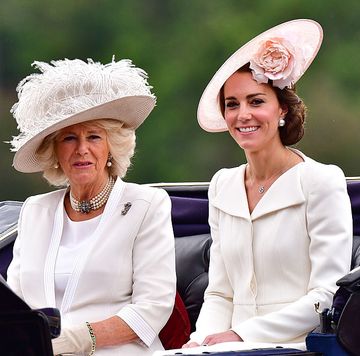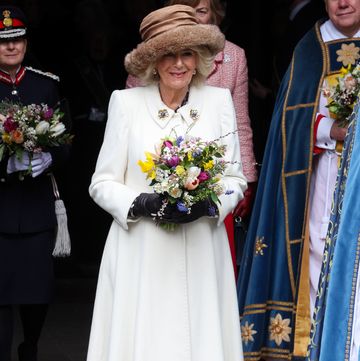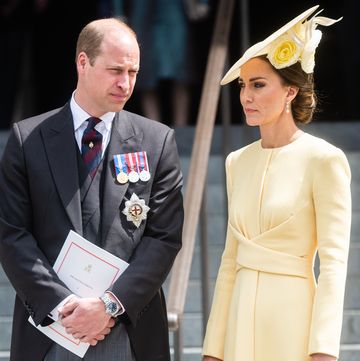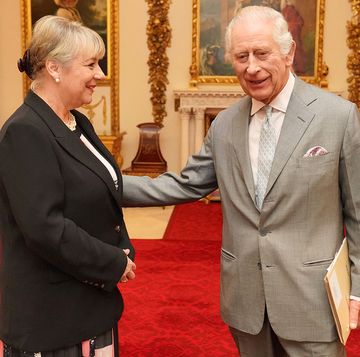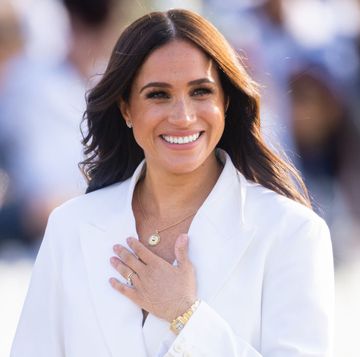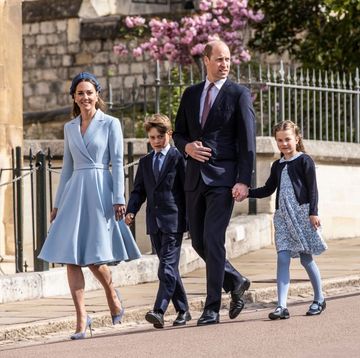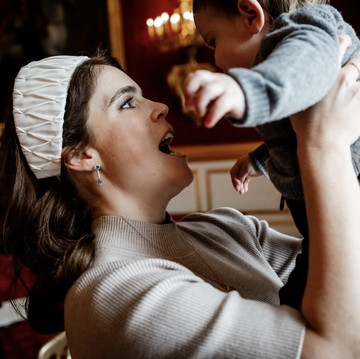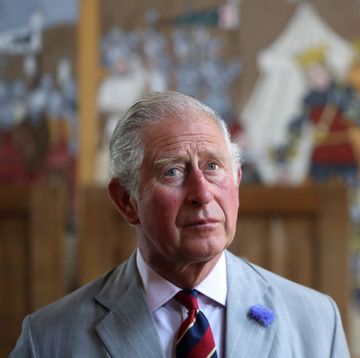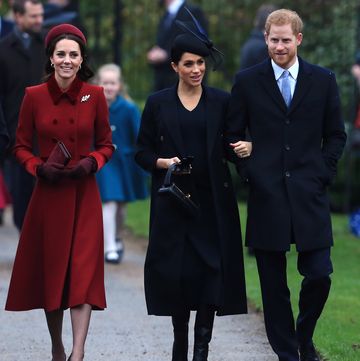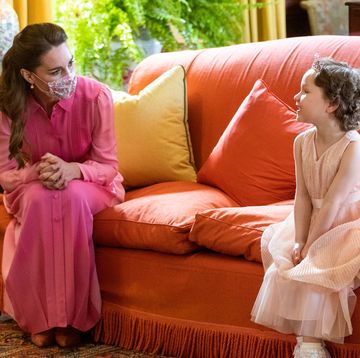One of the things that Season 3 of The Crown explores is Prince Philip's complex relationship with his mother, Princess Alice of Battenberg (played by Jane Lapotaire).
The royal Netflix show gives viewers an insight into what the Duke of Edinburgh's mother was like, shedding light on some of the traumatic events that happened throughout her life, like her family's departure exile their native Greece.
Here's everything you need to know about Princess Alice of Battenberg if you're just tuning into The Crown.
Prince Philip's mother was born at Windsor Castle.
Prince Philip and Queen Elizabeth II had some strong familial connections from the start. The prince's mother, Alice of Battenberg, was born in Windsor Castle as Victoria Alice Elizabeth Julia Mary on February 25, 1885, according to The New York Times. She was the great-granddaughter of her namesake, Queen Victoria (which means Philip and Elizabeth are third cousins.)
Princess Alice was deaf from birth, and could apparently lip read in several languages. While she was "raised as an English Princess," per iNews, she also spent time in Germany and Greece as a child and became fluent in German.
She married Prince Andrew of Greece and Denmark.
In 1903, Alice married Prince Andrew of Greece and Denmark, and subsequently became known as Princess Andrew. Their wedding took place in Germany, The New York Times reported. The couple lived together in Greece and welcomed five children together, with Prince Philip being the youngest, and their only son.
Princess Alice had a complicated relationship with Greece, particularly following the Greco-Turkish War, which took place between 1919 and 1922. Her husband, Prince Andrew, who commanded an army force in the war, was blamed for Greece's defeat, according to the Times. Though his life was spared due to foreign intervention, the family found themselves living in exile for many years, which led to Prince Philip being sent away to school in England.
Princess Alice was treated by Sigmund Freud.
According to the psychologist... from the British Psychological Society, Prince Philip's mother received psychological assistance from Sigmund Freud after her husband was almost executed following the Greco-Turkish War. Alice apparently "began to behave in a very disturbed manner," which led to her receiving a diagnosis of schizophrenia and being referred for psychoanalysis.
She was treated by two of Freud's protégés, one of whom ran the Swiss asylum where the princess stayed until the mid 1930s. Per the psychologist..., they consulted Freud, who "believed Princess Alice’s religious delusions were the product of sexual frustration and recommended X-raying her ovaries in order to kill off her libido."
Allegedly, the princess's health issues, and the question of whether she really needed these types of therapy or not, impacted greatly upon Prince Philip, who had little connection with either of his parents during this period of time.
She protected Jews during World War II.
Princess Alice was instrumental in aiding the escape from Greece of several Jews during World War II, when Nazi occupation put their lives in grave danger. She also helped members of the Cohen family hide in her palace and used her deafness to convince Gestapo officers she couldn't understand them and therefore prevented them from entering her property, Associated Press reports. Because of her efforts, the Cohen family are still alive and living in France, as of June 2018. Princess Alice was later bestowed with the title Righteous Among the Nations, Israel's highest honor granted to non-Jewish people who assisted Jews during the Holocaust.
The war itself also put pressure on Princess Alice's family as a whole, especially as her son, Prince Philip, was serving in the British Royal Navy, while all of her daughters were married to German men who fought for the Nazis, according to the AP. As a result, none of Philip's sisters were invited to his wedding to Queen Elizabeth in 1947. Per Biography, "wartime memories were still fresh."
She founded an order of nuns in Greece.
In October 1928, Alice quietly converted to the Greek Orthodox Church, according to her biography by Hugo Vickers. She founded the monastic society of Martha and Mary (also known as the Christian Sisterhood of Martha and Mary) in 1949, an order of nuns dedicated to caring for the sick.
She ran the institution as Mother Superior under the name Alice-Elizabeth, and raised funds to set up two houses for the order, one for recovering ill patients and another to train nuns, according to the Times. After lacking candidates for the sisterhood training, she eventually abandoned the project.
Princess Alice moved back to England.
After a military coup d'etat forced her to leave her home in Athens, Princess Alice moved back to England in 1967 and stayed in a suite in Buckingham Palace, according to her obituary in The New York Times. Part of the reason why she stayed was "old age and increasingly fragile health," according to Encyclopedia.com.
Her return to England apparently allowed Prince Philip to reconnect with his mother. She passed away in Buckingham Palace on December 5, 1969 at the age of 84. She was first buried at Windsor Castle, but her remains were later transferred to the church of St. Mary Magdalene in Gethsemane in Jerusalem, her final resting place.
Amy Mackelden is a freelance writer, editor, and disability activist. Her bylines include Harper's BAZAAR, Nicki Swift, Cosmopolitan, Marie Claire, ELLE, The Independent, Bustle, Healthline, and HelloGiggles. She co-edited The Emma Press Anthology of Illness, and previously spent all of her money on Kylie Cosmetics.
